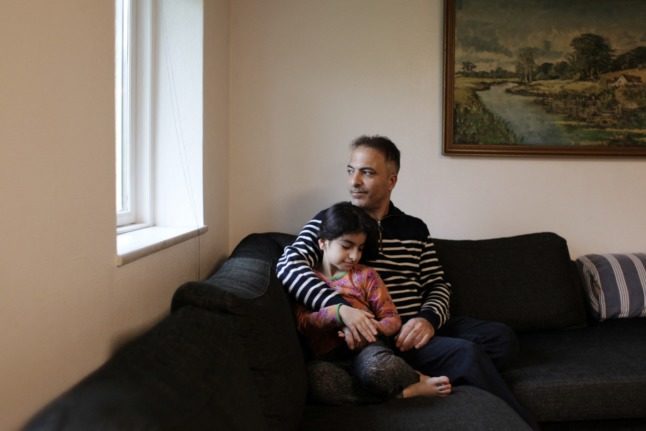The two men were arrested in February together with a third suspect in France in a coordinated operation by German and French police, the federal prosecutor's office in the German city of Karlsruhe said.
The suspects, Anwar Raslan and Eyad al-Gharib, both left Syria in 2012.
Raslan, who allegedly led an investigative unit with its own prison in the Damascus area targeting members of the Syrian opposition, is “suspected of complicity in crimes against humanity” in charges filed on October 22nd, the prosecutors said in a statement.
“In this context he is also accused of murder in 58 cases, rape and aggravated sexual assault” in the jail where more than 4,000 prisoners suffered “brutal and massive torture” from April 2011 to September 2012.
Gharib, a former officer who had manned checkpoints and allegedly hunted protesters, had allegedly aided and abetted two killings and the physical abuse of at least 30 people in the autumn of 2011, prosecutors said.
Mass protests
In the town of Douma at the time, security authorities used force to break up an anti-government rally. Gharib is believed to have helped capture fleeing demonstrators and detained them in the prison headed by Raslan.
The same day that the two suspects were arrested in February, another Syrian was detained in the Paris region for “acts of torture, crimes against humanity and complicity in these crimes”, the Paris prosecutor's office said
at the time.
READ ALSO: German Interior Ministry rules out deportations to Syria
The Syria conflict began in March 2011 with a series of mass protests demanding civil liberties, prompting a harsh crackdown by the regime which quickly began using brutal force against anti-government protesters.
Several other legal cases are now pending in Germany against the Assad regime.
Last year, German prosecutors issued an international arrest warrant for Jamil Hassan, a top Syrian official who headed the notorious airforce intelligence directorate and is accused of overseeing the torture and murder of hundreds of detainees.
Although the alleged abuses did not happen in Germany, the case has been filed under the legal principle of universal jurisdiction, which allows any country to pursue perpetrators regardless of where the crime was committed.
The Berlin-based European Center for Constitutional and Human Rights has also joined with torture survivors to file criminal complaints against 10 high-ranking Syrian officials, accusing them of crimes against humanity and war crimes.
Welcoming Tuesday's charges, the ECCHR said: “The first trial worldwide about state torture in Syria is expected to start in Germany in early 2020 – an important step in the fight against impunity.”



 Please whitelist us to continue reading.
Please whitelist us to continue reading.
Member comments